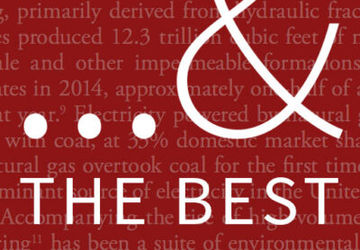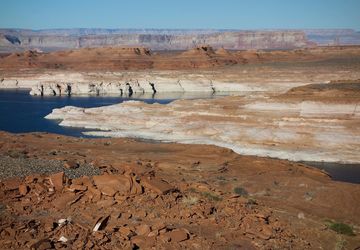From across disciplines, students with a passion for the West come together to research the region’s people, places, cultures and climate

This summer, the Lane Center has funded sixteen student researchers to investigate current and historical topics related to the American West. From climate issues like natural resource management and wildfire, to sociocultural issues like tourism in Waikiki and justice for Indigenous women, the subjects pursued by our research assistants reflect the broad interdisciplinary interests of Lane Center students and mentors dedicated to producing relevant, contemporary scholarship about the Western region.
Under the guidance of three Lane Center affiliates, several student researchers are pursuing summer projects on significant social and environmental issues impacting the American West. Their work will include two projects on water disputes in California’s Central Coast; a survey of public perceptions of carbon dioxide removal as a mechanism for meeting climate goals; and environmental governance work focused on water quality management by international river basin organizations.
Carol McKibben, who recently published a book on the history of race and resilience in Salinas, has been teaching courses at Stanford on California history, urban history and immigration history since 2006, and for the Lane Center specifically since 2020. She will explore the Central Coast of California with two research assistants, Caroline Reinhart, ‘23, and Apurba Paudel, ‘25, following the students’ particular interests.
Paudel will look at how water contamination in the Salinas Valley has affected water affordability and availability. “I am specifically interested in how communities of color in the Salinas Valley are disproportionately affected by water contamination,” she shared, “and how activist groups in this area are fighting to secure clean water.” Reinhart’s project takes up the lasting impact of activities conducted on Monterey County’s Fort Ord military base, which present not only water contamination problems but equity challenges as well. When asked about the significance of her particular research project, Reinhart noted the importance of exposing Fort Ord’s impact on the environment, and how it can be used as an example for other military bases and Superfund sites. “I want to explore how an efficient and equitable clean-up plan can be conducted to ensure the growth of a diverse and prosperous region,” she added.
Celina Scott-Buechler is a Stanford doctoral student in the Emmett Interdisciplinary Program in Environment and Resources, mentoring Lane Center research assistant Kate Esbenshade, ‘25. Their project will survey Californians’ perceptions of carbon dioxide removal (CDR), a controversial set of practices and technologies used to take emissions out of the atmosphere.
The controversy surrounding CDR is about its “moral hazard,” Scott-Buechler explained: “If polluters and policymakers know there are ways to remove carbon dioxide from the atmosphere, the incentive to curb emissions could be blunted,” she warned. As California begins to develop and shape policies about using CDR, it’s important to understand how the public views the process and communicate these findings to policymakers, Scott-Buechler stressed. “California is at the center of a lot of the CDR discussion because the Air Resources Board is in the process of cementing its Scoping Plan for the state to reach net-zero emissions. One of the central questions is how heavily the state should be allowed to rely on CDR to meet these goals,” she noted. But she’s not confident Californians currently know enough about CDR to even have an opinion on how the practice should be used. “We are trying to identify points of opposition and support, gaps in knowledge, and misconceptions,” Esbenshade said, adding that while CDR is a necessary component of many climate plans to halt the warming of the planet,” it needs to be implemented in a way that is “holistic and just.”
Another doctoral student in the Emmett Interdisciplinary Program in Environment and Resources, Gemma Smith, is mentoring student Claire Xu, ‘25, on a project aiming to improve governance of international river basins, several of which are in the American West, including the Colorado and Tijuana River basins. The research intends to provide a comparative basis to inform institutional design and management strategies for these and other international river basins in western North America.
Together, Smith and Xu have been conducting a global review of international river basin organizations (RBOs), documenting how they collaborate with different stakeholders to manage water quality. Their research will culminate with a data visualization project that conveys the findings on maps, showing the similarities and differences among the RBOs. Xu writes that the goal of the work is to effectively communicate “how collaborative governance works in the context of managing international river basins,” potentially demonstrating the value of integrated management and environmental collaboration.
Three groups of students are working under the supervision of Lane Center Director Bruce Cain this summer. Liam Anderson, ‘23, and Isobel Nairn, ‘23, are continuing the Lane Center’s rich tradition of research on one of the American West’s most pressing challenges: wildfire. Last summer, Augustus Wachbrit, ‘23, and Miri Powell, a PhD student in history, examined the newly-created Marin Wildfire Prevention Authority. A year later, Anderson (who grew up in Marin County) and Nairn are working to understand how this unique governance structure has shifted wildfire prevention policies in the county–as Nairn puts it, they want to understand “whether this is an effective and equitable structure for distributing investments in wildfire prevention across Marin.” They are also investigating the effects of personal experience with wildfire on people’s interest in participating in wildfire prevention measures. Their hope is that their research will aid in minimizing fire risk across the West.
Camden Burk, ‘25, Audrey Jung, ‘25, and Solomon Kim, ‘24, are working together on a comprehensive study of policy and governance in California with respect to a different urgent issue–the electrification of the transportation sector. How, they ask, are local governments in California, especially the Bay Area, preparing for a large-scale transition to electric vehicles to support California’s goals of decarbonization? By researching the roles of different governmental entities, such as county boards of supervisors and local sustainability officers, they aim to outline where California jurisdictions have or need more capacity to support this transition with infrastructure and policy changes. In Burk’s words, “Understanding exactly how various counties are responding to [the state’s] guidelines [for reductions in greenhouse gas emissions] and utilizing available resources will allow for a more streamlined implementation of these technologies both in California and elsewhere.”
Finally, Noah Geller, ‘23, Adria Nyarko, ‘23, and Sze En Tan, ‘24, are focusing on water issues in California’s Central Coast region. While the coastal region from Santa Cruz to Santa Barbara faces serious challenges, like much of the West, related to drought and water scarcity, it is understudied compared to other parts of California. Much like other research groups, they are exploring their topic via close attention to local governance, poring over meeting minutes and conducting interviews with local officials. Together, they will describe the landscape of water security policy and governance across all of California’s Central Coast counties, emphasizing, as Geller says, “a ground-up approach that will lead to optimal outcomes by ensuring that solutions are best tailored to the needs of residents and local stakeholders in the American West, especially in the midst of drought.”
Four students are pursuing self-designed research projects with the Lane Center this summer. Cathy Wang, ‘22, is spending the summer in Hawai’i conducting fieldwork for “Waikiki: Remapping the Stratified Tourist Experience.” Wang is interviewing a range of stakeholders in Hawai’i’s most commercialized area–which she notes is “the epitome of capitalism coupled with colonialism”–including “tourists in boutique hotels, Asian immigrant vendors, Native Hawaiian surfing coaches, local veterans, haoles–white foreigners,” with the goal of producing and widely sharing a “visual ethnography” of tourism’s impacts on the area.
Kyle Wang, ‘22, M.A. ‘23, also draws attention to colonialism’s impacts on the American West, by conducting a deep dive into the works of iconic Western writer Cormac McCarthy. Noting that “race and colonialism do not often figure centrally in critical conversations about [McCarthy’s] work,” Wang will prioritize these topics in their analysis of McCarthy’s body of work, with a particular focus on representations of the U.S.-Mexico border. Wang’s work will speak to both critical race studies and Western literary studies.
Manasa Kumarappan, ‘23, is also conducting fieldwork in the West this summer–in Nevada and Arizona. Drawing on Katherine J. Cramer’s framework of the “politics of resentment” among rural Wisconsinites, Kumarappan is meeting with a range of individuals and groups in these states from across the political spectrum, investigating the rural-urban political divide in two diverse and ever-changing Western states, both of which are increasingly crucial to national politics. “Instead of many other public opinion studies which focus on gauging stances on specific issues,” says Kumarappan, “I aim to understand the framework with which people in the American Southwest … understand politics.”
Lastly, Madyson Deale, ‘24, is pursuing a hyperlocal project, investigating the history of sexual stereotypes about Native American women through their impact on Native American women on Stanford’s campus. Deale situates her project within the larger context of Missing and Murdered Indigenous Women (MMIW), a serious issue facing Native communities across the West. By focusing explicitly on Stanford’s campus, she uncovers through archival research crucial local histories that connect to regional and national patterns. “Understanding and bringing awareness to how sexual stereotypes on Native American women lead to violence and harm against Native American women, physically and psychologically,” she says, “is key for battling these horrific issues.”


